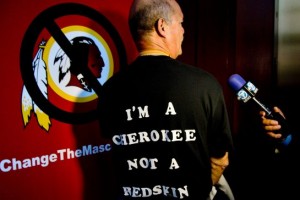In searching for podcasts associated with Indigenous culture and education in Canada, I discovered a resource that originates from right here in my own city of Toronto. Indigenous Waves is a radio show, broadcast on CIUT 89.5 FM. The show’s website offers articles and podcasts organized by a range of categories relevant to Indigenous issues. One of the most recently posted podcasts is a discussion with Anishinabek Grand Council Chief Patrick Madahbee and author/educator Niigaanwewidan Sinclair regarding the First Nations Education Act, for which draft legislation was released in October.
The discussions in this podcast, like much of the media coverage at the time that the draft legislation was released, help to remind us of how the strategies of the federal government in Canada, even in 2013, are ultimately still openly controlling in their approaches. My participation in ETEC521 has instilled a type of hopefulness in me for the future of education in Canada in general, as well as Indigenous education. However, the reality of this draft legislation is sobering and discouraging. Resources like Indigenous Waves certainly help to keep this reality in focus.

